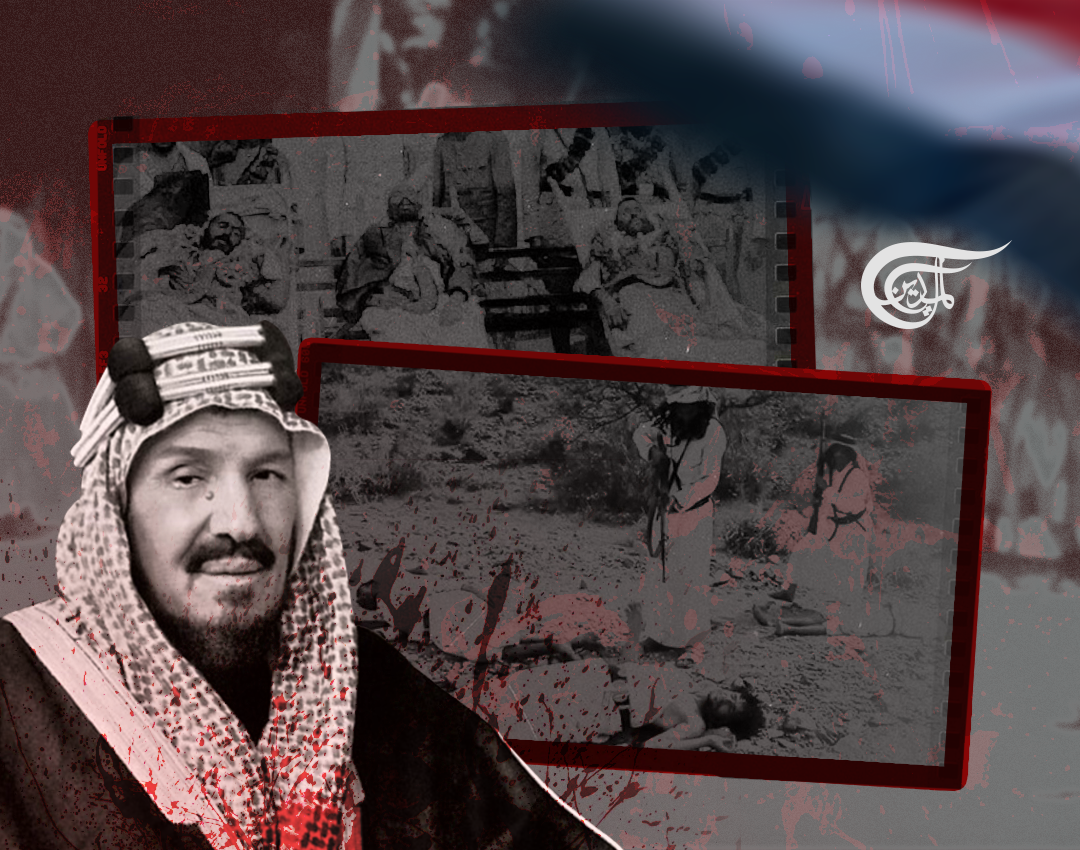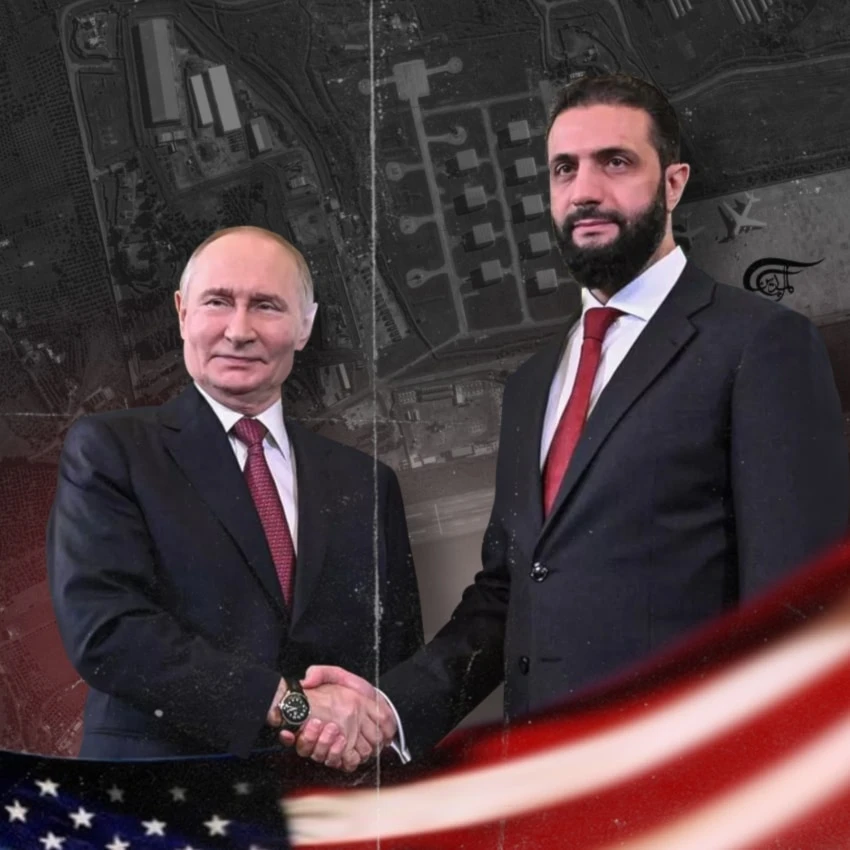The forgotten massacre of Yemeni pilgrims in Tanomah, Sadwan of Saudi Arabia
Ninety-nine years ago, gangs of Abdulaziz Ibn Saud committed a massacre against Yemeni pilgrims in Tanomah and Sadwan in the Asir region of Saudi Arabia on their way to perform the pilgrimage. No justice has been served to this day.
In 1923, gangs belonging to the founder of Saudi Arabia Abdul Aziz Ibn Saud shot dead over 3,000 Yemeni pilgrims heading toward Mecca to perform the annual Hajj.
When they arrived in Tanomah and Sadwan in Asir of Saudi Arabia, the gangs called Al-Ghatghat started shooting the pilgrims, killing 3,105 peaceful pilgrims, according to Professor Hamoud Al-Ahnoumi, author of the book titled "The Great Massacre of Pilgrims...The massacre of Yemeni pilgrims in Tanomah and Sadwan by Ibn Saud’s gangs in 1923."
Al-Ahnoumi told Al Mayadeen English, citing Yahya bin Ali Al-Dhari's manuscript archived at the Great Mosque of Sanaa, that one of the scholars, Ahmed Al-Washli who arrived from Mecca, said: "the number of survivors was about 500 people, of whom 150 continued their way to Hajj."
Speaking about what pushed Ibn Saud to commit this crime, Ahnoumi said this massacre was a British "acceptance test" for him to be its man in the region.
"Britain was preparing Ibn Saud to be its first man and main agent in the region, who would implement its disruptive and differentiating project, but it wanted him to carry out an acceptance test that would qualify him to be its man who could carry out any ugly thing it asked of him," Ahnoumi said.
He added, due to the fact that Yemenis would not allow Ibn Saud to control the Two Holy Mosques with the UK's support, the two sides committed Tanomah and Sadwan massacre to prevent Yemenis from defending the two holy sites, stressing that the "Tanomah massacre took place in 1923 and the storming of the Two Holy Mosques by Ibn Saud with British support took place in 1924."
According to Ahnoumi, the war between Yemen and Saudi Arabia broke out in 1934 and ended with the Treaty of Taif, with this massacre being one of the causes of the war.
The following is the full text of the Al Mayadeen English interview with Professor Hamoud Al-Ahnoumi.
Was Ibn Saud’s reaction to the massacre of Yemeni pilgrims similar to the reaction of Mohammed bin Salman's reaction to the killing of Jamal Khashoggi?
The bloody approach on which the Saudi rule was founded with colonial support since the so-called first Saudi state is a continuous approach, and what we call today the hideous and horrible ISIS behavior towards opponents is the behavior that the Saud family and their authority have adopted since the first day.
When the soldiers of the Saud family shot and killed those [Yemeni] pilgrims in an ambush while they are safe, then slaughter them with swords and knives and separate their heads from their bodies, as proven by the numerous documents that we have received, and similar incidents occurred before and after that like when the Saudi regime kills Khashoggi, who lived his life as a Saudi regime propagandist, but when he began directing some of his advice to them, they dismembered him, which emphasizes that the bloody Saudi approach has not changed and that it is a behavior rooted genetically within this bloody entity with a colonial function.
How was Ibn Saud able to cover up this crime and bury it, and what was the position of America and Britain regarding this massacre?
Ibn Saud was able to cover up and bury the massacre through four things:
1- Investing a lot of money flowing from oil to clean the dirt and filth of the regime, creating a local, regional and global environment that only displays the advantages, many of which are exaggerated, and works to bury all the crimes committed and have been perpetrated by the Saudi entity.
2- The rulers of the Saud family directed their universities and centers to hold international conferences and symposiums where many researchers and academics are usually summoned, and a lot of money is bestowed upon them, provided that they write extensive praises and favors for the rulers of the Saud family, and bury all their shortcomings, which produced many armies of scribes, researchers, centers and universities with a mission to fawn over the Saud family, and this is well known in academic circles.
3-They punished everyone who wrote about the truth, and deprived them of their wealth. Moreover, they even punished truthtellers by depriving them of Hajj and Umrah throughout their lives, as happened to the professor of modern and contemporary history, Professor Sayed Mustafa Salem, may God have mercy on him, whom the Saudis looked at with disdain, despite him trying to be fair and objective. Yet the Saudis did not accept him unless he was part of the flock, otherwise, he should not enter Saudi Arabia for Hajj and Umrah.
4-When the Saud family took control of the sovereign, political, educational, and cultural decisions in Yemen, and framed the rulers of Yemen within the Saudi Special Committee, and paid their salaries, a lot of constant pressure was applied to all writings, newspapers, magazines, and universities that could produce something of the truth.
There are many writers who were disposed of articles, which exposed the Saudi regime and its crimes, were either deleted or banned from publication. Many Yemeni personalities who were resistant to the Saudi policy of subjugation were targeted with murder, creating problems for them, and fighting them in their jobs and businesses.
Here, I present the end of Dr. Abdul Rahman Al-Wajeeh, who wrote in his academic theses about Asir and the Yemeni-Saudi conflict, and when he returned to Yemen he was prevented from obtaining a professor’s seat at Sana’a University. When the court ruled that he should have the seat, he was killed in mysterious circumstances along with his family members in a mysterious traffic accident.
Regarding the American position, we did not see it at the time as its star did not shine until after the Second World War. Regarding the British position, it certainly looked at the massacre with satisfaction and saw that it had achieved its colonial goals. Two British documents dealt with the massacre, sent by one of their officials, in which the UK reduced the number of pilgrims killed by those he named Wahhabi hardliners. But turning a blind eye to this horrific crime and not commenting on it politically indicates responsibility for the massacre.
What prompted Ibn Saud to commit this massacre against peaceful pilgrims, with unparalleled ugliness?
The Yemeni government at that time was resistant to Britain, and Imam Yahya Hamid al-Din refused to engage in the First World War with Britain against Turkey, although he was the one who led the Yemeni revolution against the Turkish occupation, because he saw that it is not permissible to support an infidel colonial state against an Islamic state, he refrained from participating, unlike Ibn Saud and the Sharif of Mecca. Then Britain tried to punish Yemen by occupying Hodeidah from 1918 to 1921, and then handing it over to its client Mohammed al-Idrisi.
From time to time, Imam Yahya sought to restore the occupied areas in the south of Yemen, and he used to make disturbing statements against Britain in this regard. At the same time, Ibn Saud was occupying parts of Asir of Yemen, and the Imam was asking him to evacuate it as it is a Yemeni land.
At that time, Britain was preparing Ibn Saud to be its first man and primary agent in the region, who would implement its disruptive and differentiating project, but it wanted him to carry out an acceptance test that would qualify him to be its man who could carry out any ugly thing it asked of him.
Since the Yemenis are deeply and historically connected with the Two Holy Mosques, Britain and Ibn Saud wanted to suppress any tendency of the Yemenis to support the Two Holy Mosques when the British and Saudis carry out their plan to seize the Two Holy Mosques for their new and main agent Ibn Saud.
This is what actually happened, as the Tanomah massacre took place in 1923, and the storming of the Two Holy Mosques by Ibn Saud with British support took place in 1924, after they succeeded in sending a savage and terrifying message to all Yemenis that go away from the Two Holy Mosques because we are coming to slaughter you, and kill you in this way that we killed pilgrims.
Therefore, Britain ordered Ibn Saud to carry out this crime, but at the hands of an ideological and Wahhabi military group called Al-Ghatghat, who saw in the general Muslims that they were polytheists and infidels who should be killed and their money looted, while seeing such heinous acts as a reward that can draw them closer to God.
How did the Imam of Yemen react to this massacre?
Unfortunately, the plan by Britain and Ibn Saud was to commit the massacre and blame a third party, which the Yemeni government could not reach. As soon as the crime occurred, Ibn Saud sent a letter disavowing the crime, and that he had nothing to do with it.
The Imam asked Ibn Saud to sentence the killers according to God’s judgment, considering that they were among his soldiers who were under his command, and the Imam hoped that retribution would be taken from them, but Ibn Saud, being the one who ordered the massacre, eluded at the beginning and promised that the issue would be resolved.
The imam at that time was suffering from some internal rebellions, and was busy building his new state, but as soon as Ibn Saud’s military and economic position became strong, he openly turned on the imam and began to address him disrespectfully in his correspondence.
And despite the imam’s government continuing to raise the grievance of the Tanomah martyrs in bilateral meetings, Arabic conferences, and mediations, Ibn Saud disavowed the crime in the end completely, and refused to treat the file, and refused the reimbursement of victims' families; because he was of the opinion that this would constitute an admission of the crime, and would take away the political and moral gains he had obtained from it.
Then the war [between Yemen and Saudi Arabia] broke out in 1934 which ended with the Treaty of Taif, and one of the causes of the war was this massacre.
Syrian traveler and historian Nazih Moayad Alazem, who visited Yemen in 1927, mentioned in his book "Journey in Arabia Felix" that the number of this massacre's martyrs was between 5000-6000. What was the accurate number of martyrs and how did you investigate it?
Due to the lack of accurate statistics for the pilgrims at that time, multiple accounts were issued by historians about their number, but the number that settled on the Yemeni and Saudi parties at the time through their correspondence and documents said that they were more than three thousand martyrs, and we have received accurate statistics transmitted by Mr. Yahya bin Ali Al-Dhari in a manuscript in the Great Mosque [of Sanaa], that one of the scholars, Ahmed Al-Washli, arrived from Mecca, and stated that the Pilgrims were 3,105 pilgrims.
Alazem mentioned in his book that those who survived the massacre were between seven to five... How accurate is that, and did you know the survivors or meet their sons or relatives?
The aforementioned manuscript mentioned that the number of survivors was about 500 people, of whom 150 continued their way to Hajj after fleeing to Tihama of Asir, and they rode to Jeddah, which is a very reasonable number, with evidence that we were able to obtain the names of dozens of these survivors from their children and grandchildren.
We did not meet any of the survivors, but we have interviewed dozens of their children and grandchildren, and documented their news in my book "The Great Massacre of Pilgrims", and work is still underway to document the largest possible number of martyrs and survivors.
After 99 years of the massacre... What can be done so that the international community moves to recognize this massacre and ensure that Saudi Arabia does not go unpunished?
Everyone admits that more than 3,000 martyrs of Yemeni pilgrims were killed by a Saudi ideological military formation, under the orders of Ibn Saud, and therefore the Saudi regime is first responsible for this massacre criminally, politically, morally, and ethically, which lawyers classify as a crime against humanity.
It took place in the context of security and peace, not in the shadow of war, and such type of crime is an imprescriptible offense, as there is a possibility, according to legal experts, to file lawsuits against the Saudi regime before international courts, and this needs the support of the state, lawyers, and human rights organizations, with the support of families of the victims.
I also call for the issuance of a law regulating the filing of lawsuits before Yemeni courts, the establishment of a special court for this crime, and the issuance of judgments in that, and soon the day will come when the Yemenis will impose on the Saudi regime the implementation of these provisions.
All in all, the Yemenis have a Quranic legitimacy in remedying themselves and taking justice into their own hands for their victims. The Almighty said: {And if anyone is slain wrongfully, we have given his heir authority (to demand qisas )} and this is the strongest legitimacy that can be relied upon.

 Naseh Shaker
Naseh Shaker
 13 Min Read
13 Min Read











